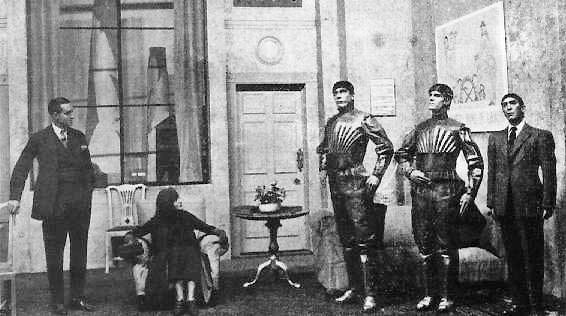Content Warning
Content Warning
If you don't already, you should subscribe
https://flipboard.social/@Flipboard/114240990006623313
Flipboard@flipboard.social - What is the most inclusive film festival in the world? @thecontinent says it’s the Berlinale, which this year supported multiple African movies and auteurs. The Golden Bear — the festival’s grand prize — was won by Senegalese-French Mati Diop for her art reparations documentary, “Dahomey.” She is the first Black person to win that award.
https://continent.substack.com/p/the-berlinale-is-getting-it-right
#Cinema#Film#Movies#Africa #Senegal #Berlinale#Newstodon#NewstodonFriday#FollowFriday
Content Warning
Der palästinensisch-israelische Dokumentarfilm »No Other Land« ist eine Hommage an die Solidarität
„Die Regisseure Basel Adra und Yuval Abraham haben sich sicherlich etwas anderes gewünscht. Doch wenn sich in Deutschland aus ihrem Dokumentarfilm »No Other Land« etwas lernen lässt, dann ist es wohl die Einsicht, dass dem Antisemitismus-Diskurs offizieller bundesdeutscher Stellen wirklich nicht mehr zu trauen ist. Über diesen klugen und berührenden Film, der auf der Berlinale im Februar zu Recht den Dokumentar- und Publikumsfilmpreis gewann, haben staatliche Stellen alle erdenklichen Unterstellungen verbreitet. …“
Content Warning
#fiction #anime #manga #tv #television#VideoGames#TTRPGs#CCG #games#SciFi#Fantasy #books #comics #superheroes #film #movies #books#QuestionOfTheDay
Content Warning
It has aged pretty well. It shows a lot of horrible human behavior and biases. But then, it’s pretty much about that. The film is very aware of the nasty truths about the society it depicts, so the fact we see sexism, misogyny, sexual harassment, racism, police violence, and corruption is just par for the course.
A few subtle things stand out more than they did then: Ilsa refers to Sam as a “boy” at one point, which does grate on my modern ears, but that was entirely accurate to the era and setting, even if she’s one of the “good ones” (no one is a saint in this film, except maybe Lazlo).
The climax of the film is about cynical people overcoming their immobility in order to fight back, after all.
A couple of things do require me to remember the film was made in 1942. For example, the usage of the phrase “concentration camp” seems curious to anyone viewing the film after the 1950s, because at that time, Nazi concentration camps were mostly a dark rumor in the West.
In 1942, it probably seemed only clear that the Germans had done what the USA had in fact, also done, in detaining Japanese Americans.
Their true horror would not be revealed until after the war, when the camps were liberated by Allied Forces.
Perhaps it would be good to remember this. The world went to war with Nazi Germany BEFORE it knew they were systematically exterminating people. It was enough to know that they were discriminating and deporting them, and invading their neighboring nations.
And also to remember that things may be happening even now that we are not aware of. Many war crimes do not become clear until after the wars they occurred in. And we already know of many.
So many lines in this film have become memes! It’s like Shakespeare, that way! #ClassicMovies #Film
Content Warning
Čapek was opposed to all forms of totalitarianism, including both communism and fascism. As a young man, he worked as a journalist, in Prague, where he wrote on topics such as nationalism, totalitarianism and consumerism. As a teen, he was expelled from his high school for participating in an unauthorized student club, which he later described as a "very non-murderous anarchist society." In 1938, he had the chance to leave for the UK, but refused to leave Czechoslovakia, where the Nazi Gestapo had named him "public enemy number two." He died later that year from pneumonia.
#workingclass #LaborHistory #karelcapek #sciencefiction #scifi #robot #serf #slavery #totalitarianism #satire #play #playwright #theater #film #bladerunner #rebellion @bookstadon
